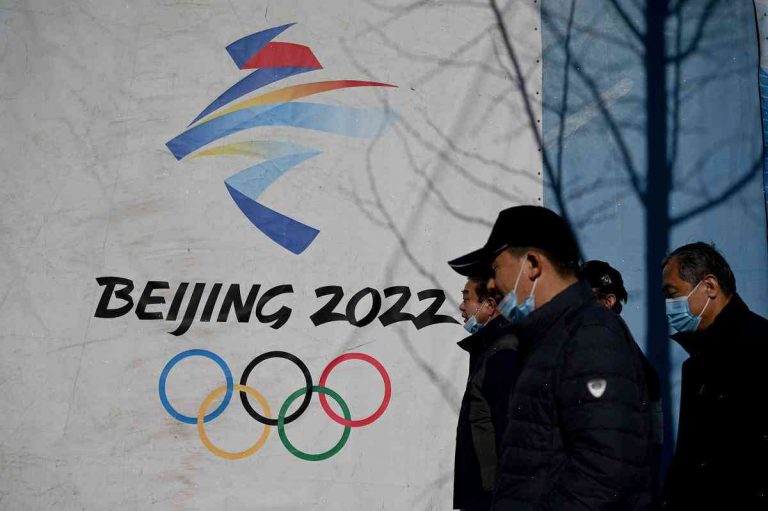Written by Carma Wadley, CNN Canada Contributors Andréina Chiesa, CNN Toronto, Canada Written by Carma Wadley, CNN Canada Contributors Andréina Chiesa, CNN Toronto, Canada Contributors
The city of Vancouver is hosting the world’s best athletes this month — from the likes of skier Lindsey Vonn and two-time all-around athlete for the 2018 Winter Games in PyeongChang, Gold medalist figure skater Patrick Chan.
But these and other elite athletes will have to deal with a bizarre mob scene of protestors if they show up to the Games: a uniquely Canadian protest.
Banned
On the day leading up to the opening ceremony, Amnesty International, Greenpeace and a handful of other Canadian environmentalist groups organized a protest camp, alongside students and members of the indigenous majority — who contend that a major pipeline project running near Vancouver is an environmental disaster waiting to happen.
However, the protesters have been banned from the site before the Games get underway. Amnesty International’s Amanda Alvaro said that the group had planned to “reach out to the organizing committee and demand protection.”
“It was an attempt to speak with the Canadian authorities and come up with solutions,” Alvaro added.
A Canadian woman on a self-assembled Olympic flag poses in a protest camp during preparations for the Winter Olympics, in Vancouver. Credit: Harry Engels/Getty Images North America/Getty Images
Canada’s peculiar relationship with their Olympics
Now, for the rest of the Olympics, protests are expected and even welcomed by the Canadian government. Prime Minister Justin Trudeau offered to arrest the protestors should they attempt to attend the Olympic venues.
This has an alternative downside.
Kathy Drake, a US organizer with Greenpeace International, said: “We don’t want the cops to come in and chase us all away.”
The Canadian government has apparently played into that expectation — but organizers had actually anticipated both. Last year, activists set up a protest encampment on the Olympic slopes in Whistler — exactly 70 kilometers (43 miles) from the Athletes’ Village in Vancouver.
Activists staged a demonstration against Vancouver’s Olympic games at Whistler and made an area around the Whistler town center clear for corporate media during the Whistler Creekside 2003 concert. Credit: Eric Nyhus/CORBIS/Corbis via Getty Images
Sierra Bennet, campaign director for We Are All Athletes (WACA), an international organization campaigning for indigenous participation at the Olympics, says: “If Canada is not going to have a voice, and the corporations are going to have a voice, then we need to be vocal and show up and join in, have our voices heard.”
She added: “For indigenous people, that’s more than part of our cultural history — it’s about our identity. We’ve lived our life in these communities for many, many generations and we need to be included.”
Related content 4 things to know about climate change and the 2018 Winter Olympics
Although the violence seen during the protests in Whistler last year was minimal, the impact was an ongoing issue.
Denis Marchand, a spokesperson for Vancouver’s Emergency Management, said: “We’re hearing there have been no injuries this time around. But there are numerous First Nations out there. So I’d hate to see anyone getting hurt.”
Protestations
Karin Johansen, 21, the most experienced member of the Greenpeace protestors at the time, was intending to make her Olympic debut in the skating competition but her dream is still in danger of being marred.
We Are All Olympians/Raised on Time A Greenpeace demonstration is staged in Canada during the Olympic Winter Games in Whistler, British Columbia. Credit: supplied with permission We Are All Olympians/Raised on Time
Despite the ban, she believes their protests have at least had a positive impact — thereby sparking more conversations across the country. “I know a lot of people are really looking at doing this every four years,” she told CNN.
Not everybody has been quite so forthcoming about this — with some groups expressing disdain for their actions. One conservation organization told CNN: “We saw Greenpeace as an organization that was outside of Canadians’ scope of people who needed to be represented.”
